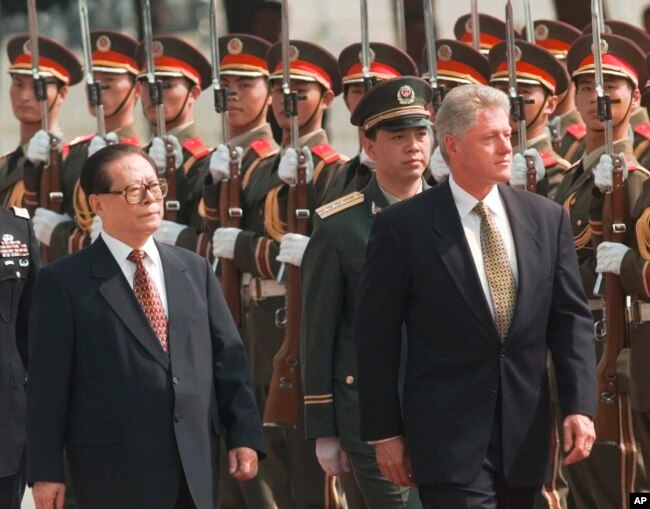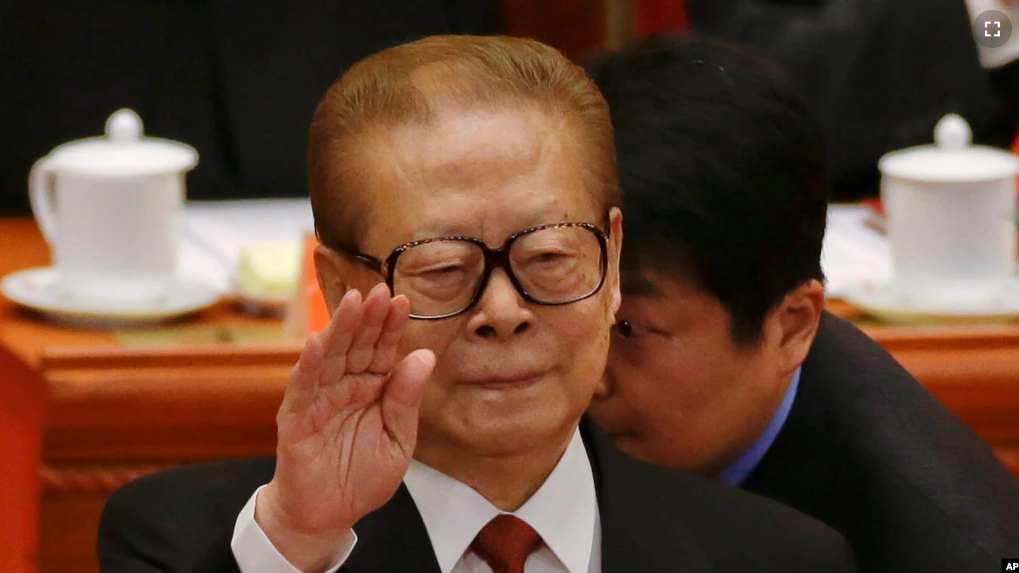Jiang Zemin, the former president of China, died Wednesday in Shanghai, Chinese state media report. He was 96.
Jiang led China out of the isolation that followed its army’s deadly actions against protesters in Tiananmen Square in 1989. As president, Jiang supported economic reforms that led to explosive growth. He served as president for ten years, leaving office in 2003. He led the ruling Communist Party for 13 years until 2002.
Chinese state media report the cause of death as leukemia, a cancer, and organ failure.
His death comes as the country’s government faces major public protests of strong COVID-19 restrictions. Over the weekend, demonstrators called for leader Xi Jinping to resign.
Jiang was a surprise choice to lead a divided Communist Party after the 1989 unrest. He saw China through history-making changes. Those included free-market reforms, the return of Hong Kong from British rule in 1997 and China’s admission to the World Trade Organization (WTO) in 2001.
Even as China opened to the outside, Jiang’s government did not accept political opposition. It jailed human rights, labor and pro-democracy activists. His government banned the Falun Gong spiritual movement, which the ruling party saw as a threat to its power.
Jiang stopped officially working for the government in 2004. But he remained a force that led to the rise of Xi, who took power in 2012. Xi has crushed the little remains of dissent in China and reestablished the power of state industry.

The ruling Communist Party declared Jiang a “great proletarian revolutionary” and “long-tested communist fighter” in a statement on his death.
Reports that Jiang might be in poor health spread after he missed a ruling party meeting in October. At that meeting, Xi awarded himself a third five-year term as leader.
In 13 years as Communist Party leader, Jiang guided the country’s rise to economic power. He welcomed capitalists into the party and brought in foreign investment after China joined the WTO. China eventually became the second-largest economy after the United States.
Jiang enjoyed a friendly public image. However, he severely punished political opposition.
His most famous target was Falun Gong, a spiritual group founded in the early 1990s. Chinese leaders feared its popularity. Falun Gong had tens of thousands of followers, including military officers.
Activists tried to form an opposition China Democracy Party, a move permitted by Chinese law. But they were found guilty of subversion and sentenced to prison.
Jiang supervised the return of Hong Kong to China on July 1, 1997. It had been ruled by the British for over 150 years. The nearby Portuguese territory of Macao was returned to China in 1999.
Hong Kong was promised self-rule and became a center for mainland Chinese companies with business overseas. Meanwhile, Jiang took a hard position on China’s ownership of Taiwan. China considers the island a rebel province.
During Taiwan’s first direct presidential election in 1996, Jiang’s government tried to frighten voters by firing missiles into waters near its coast.
At the same time, trade between the mainland and Taiwan grew to billions of dollars a year.
I’m Dan Novak.
Dan Novak adapted this story for VOA Learning English based on reporting by The Associated Press.
_________________________________________________________________
Words in This Story
isolation — n. the state of being in a place or situation that is separate from others
proletarian — n. a member of the working class
capitalist — n. a person who has a lot of money, property, etc., and who uses those things to produce more money
